Q: What walks on four legs at dawn, two legs at noon, and three legs at sunset?
A: A human being, crawling at birth, standing at midlife, hobbling on a cane as life ends.
Spoiler alert:
This is the riddle of the Sphinx. When he solved it, Oedipus was saved from being devoured, though since it’s Greek drama, NOTHING COULD SAVE HIM FROM THE REST OF HIS FATE. No matter what Oedipus did, once he solved the riddle and lived, he was free to kill father, marry his mother, and get blinded.
Poor king.
That is a digression. My main point is that taking care of my father-in-law reminds me that we pass through greater mobility and independence to end up, if we’re lucky, as two-thirds of a tripod, the metaphorical cane our parents may literally lean on.
I’ve been paying attention to Atul Gawande and Tony Back lately, since they are both doctors who are concerned with communication in health care and end-of-life issues. At 85, my father-in-law is nearer the end of his life than ever before. (I feel I have to work very hard to get the language about this right; it’s partly superstitious and partly in honor of being direct and honest about difficult topics. But I really don’t want to jinx anything.
He is also unhappy about how he lives. He doesn’t want to live in Seattle, he liked his condo on the waterfront south of the city, and now he lives in a building full of old people where they do things like take away his medications and feed him mushy food. But we like having him with the old people, since there are services for people as young as he is and up (he claims to be among the youngest there, and I have no way of knowing if that’s an accurate perception, but it matters to him), and we don’t want him in charge of his own medications, and he wasn’t even really eating when he was living alone.
So who’s in charge? The elder or his children? Gawande says that we need to be able to talk about what gives life meaning, and we need to do it BEFORE someone is unconscious in the hospital, and since my father-in-law has in the past year been both unconscious and hospitalized, maybe we should talk to him and ask him what gives his life meaning.
But that kind of conversation has never taken place among my father-in-law, my husband, and his sister. I’m the kind of person who would love to have this kind of conversation every day, even with strangers (why didn’t I become a journalist?), but I don’t think they are.
What we can have and do have is conversations about our concerns, and those are important and effective. That is to say, the younger generation can bring up our concerns, and my father-in-law hears and responds, since he doesn’t want to worry us, but I’d really like to know exactly what his concerns are and see if he needs something different from what we need. Gawande suggests that the parent values autonomy where the children might value safety, and discussing these contradictory needs is wise.
I do know a lot of what he wants out of life, though. I know he wants to live in a more suburban or country-like setting; he’s truly a small-town boy at heart. He wants to drive again (which is off the menu until the neurologist okays him, and the rest of us are okay with that), though it’s not clear to me what driving represents to him: freedom? control? going better places? getting breakfast at his favorite chain restaurant? He wants other things that are completely impossible; he misses his hearing, his vision, and my late mother-in-law, not at all in that order. He buys a lot of undershirts and socks, which makes me think they fulfill some need (though hoarding can be a symptom of dementia, but doesn’t dementia have needs?).
What I want is something pretty simple, a variation of something that flitted past my eyeballs recently: a doctor who said, “I don’t mind dying, I just don’t want it to be my fault.”
Well, my father-in-law is, though an adult who has proven his ability to take care of himself over a lifetime, is not as good at taking care of himself now as he used to be. And I don’t want anything to happen to him that’s my fault, or his.
There I go complicating the issue just as I thought I was concluding. Here’s where I’ll stop: It’s important to think about the contradictory needs of involved parties. And there’s no single person in a family constellation whose needs get to be the sole driver. Decision-making gets more complex the more people are involved in it (which is one reason it’s nice to own your own car and jump into it whenever you want), and it is an act of creation, not discovery.
It is an act of making yourself into the third leg of the tripod, the support, whether you’ve been asked to or not. And hoping that’s okay and we can all live with it

Boy, does this resonate! Great analysis of an important topic.